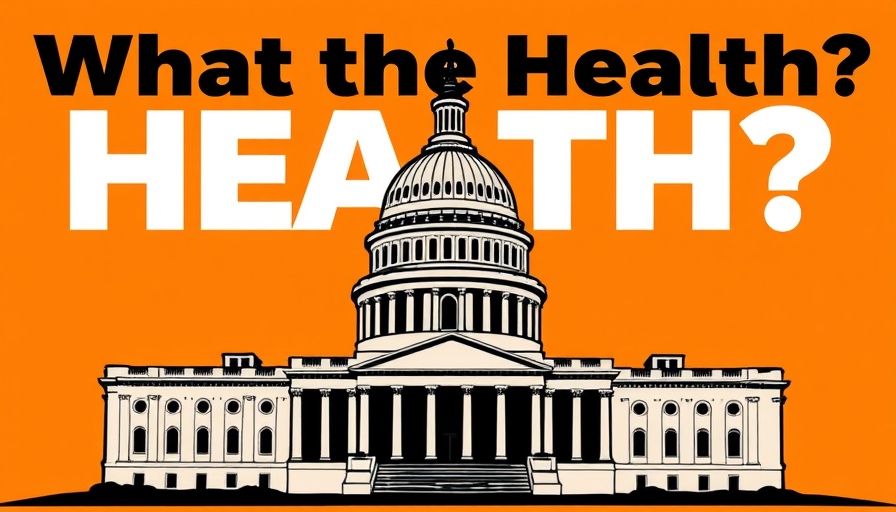
The Controversy Surrounding Vaccine Safety and the Public Health Response
In recent months, a significant shift in public health discourse has emerged, primarily sparked by Health and Human Services (HHS) Secretary Robert F. Kennedy Jr. His plans to revamp the Vaccine Injury Compensation Program (VICP) have raised eyebrows across the public health sector. Aimed at expanding the types of injuries recognized by the program, his strategy could profoundly influence the pharmaceutical landscape and vaccination campaigns across the U.S.
The VICP, established to compensate individuals injured by vaccines while protecting manufacturers from litigation, has paid over $5 billion since its inception. This crucial fund, buoyed by a small tax on each vaccine, ensures that patients can seek recourse when adverse effects occur. However, Kennedy's recent initiatives threaten to destabilize this delicate system.
Historical Context: Understanding the Vaccine Injury Compensation Program
The Vaccine Injury Compensation Program was created in 1988 to address rising concerns over vaccine safety and protect pharmaceutical manufacturers from lawsuits. Following a surge of litigation in the 1980s, which posed a threat to vaccine availability, Congress established a no-fault compensation program. This program allows individuals seeking compensation for vaccine-related injuries to file claims without the burden of conventional tort claims.
Historically, the VICP has been a safety net for patients while enabling freedom for vaccine manufacturers to continue producing essential immunizations without fear of debilitating lawsuits. However, concerns that the system may now be at risk due to proposed expansions underline a critical juncture in public health policy-making.
The Implications of Kennedy's Proposed Changes
Kennedy's ambitious plans to broaden the criteria for what injuries are eligible for compensation are alarming many public health officials. By proposing financial reparations for alleged injuries such as allergies and autism—despite the absence of any credible scientific link—Kennedy may open a floodgate of claims that could potentially bankrupt the VICP.
Not only does this proposed shift put financial strain on the fund, but it may also deter vaccine manufacturers, making them increasingly risk-averse. This could result in fewer vaccine options available on the market, directly impacting public health initiatives aimed at controlling infectious diseases. According to virologist Angela Rasmussen, this could lead to severe ramifications, stating that such a 'radical agenda' could heighten mortality rates and harm public trust in vaccines.
Counterarguments: Perspectives from Public Health Advocates
As Kennedy continues to defend his strategies as measures for 'pro-safety' and transparency, notable figures in the public health sector voice significant concerns regarding the potential implications of these changes. The disparagement stems mainly from the scientifically unfounded claims about vaccines causing autism—persistent misinformation that has been debunked repeatedly in credible scientific studies.
For example, a substantial body of research, including findings for The Annals of Internal Medicine, has established no link between vaccines and autism. Public health leaders emphasize that allowing claims connected to such disproven theories could foster misconceptions among parents, deterring them from vaccinating their children and thus leading to potential outbreaks of preventable diseases.
The Role of Public Health Messaging and Education
As Kennedy's narrative gains traction among certain communities, the role of public health education becomes increasingly critical. Experts argue that timely, evidence-based communication is essential in countering misinformation while reinforcing the safety and efficacy of vaccines.
Understanding the psychological and emotional dimensions of vaccine hesitancy can provide valuable insights for policymakers and public health advocates. Fostering a transparent dialogue with communities, discussing the rigorous testing vaccines undergo, and addressing concerns surrounding adverse effects must be prioritized to rebuild public trust.
Future Trends: The Road Ahead for Vaccination Policies
The impending decisions surrounding the VICP and potential reforms within the vaccination landscape will be pivotal. As the HHS collaborates with the Department of Justice to explore alterations to the program, it remains crucial to balance the need for accountability without compromising the integrity of public health initiatives.
There's an urgent necessity for a comprehensive and well-informed public dialogue, where experts can elucidate the importance of vaccinations in preventing disease outbreaks while dismantling myths that endanger community health. As we navigate these turbulent waters, it is vital to uphold public trust through transparent communication and responsible policy-making.
Call to Action
In this climate of misinformation surrounding vaccines and public health, engaging in informed discussions is instrumental. By staying informed, discussing findings with peers, and actively participating in community health initiatives, individuals can contribute to steering public dialogue towards science-based discussions. Together, we can work towards a healthier future, free from the ramifications of misinformation.
 Add Row
Add Row  Add
Add 



Write A Comment